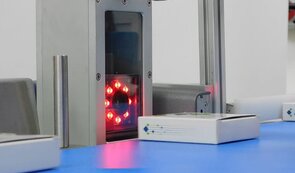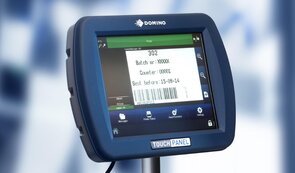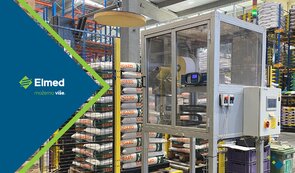Five manufacturing challenges and how to overcome them: preparing for the future of work
.png)
1. Supply chains in turmoil
Many companies can look to address some of the supply chain issues we are seeing today, or at the very least make them easier to manage, using smart systems and automation.
Automation can be used to increase control and agility in factories by creating repeatable processes that improve efficiency and reduce the risk of expensive errors. One way of achieving this is with automated coding solutions, such as Domino’s QuickDesign.
Coding automation can reduce the risk of coding errors and the associated downtime and provide real-time visibility of what is happening on a production line. These factors fuel more efficient manufacturing operations, with manufacturers using production data to pre-plan runs, and keep lines running, to improve overall production line efficiency.
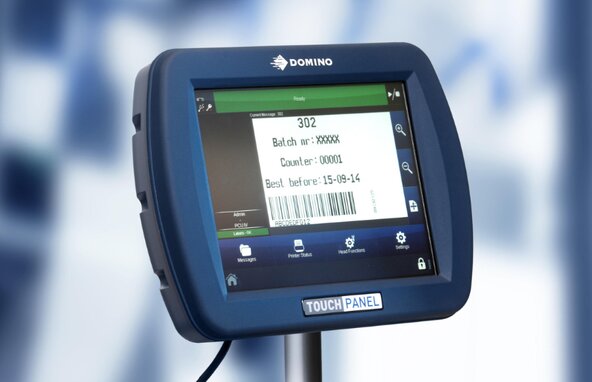
2. Manufacturing skills gap
Industry 4.0, augmented reality, and cloud computing are key to managing current issues with worker shortages. Manufacturers should look to automate routine, manual tasks to remain operation, and ensure that the workforce present on the line is put to the best use.
Remote monitoring can keep production running smoothly with a reduced workforce, and machines equipped with cloud connectivity, such as the Domino Cloud, can provide production data, performance monitoring, and predictive error alerts.
Companies can also look to equipment suppliers to help keep machines running. Domino’s SafeGuard AR allows service engineers to interact with production staff on the line and resolve issues with machinery in real-time or arrive on-site with a thorough understanding of the problem at hand.
3. Quality control and waste reduction in manufacturing
Any manufacturing line needs to have rigorous quality control processes to ensure product quality is adequately monitored, this helps to improve overall efficiency and reduce waste. The most effective way to facilitate this is with inspection via automated vision systems – such as Domino’s R-Series.
By utilising automated vision inspection systems, manufacturers can ensure that their products are adequately coded and identify where problems on the line could lead to coding issues. Vision inspection systems can provide alerts, or automatic line stops when an error threshold is reached to allow for preventative action and problem rectification.
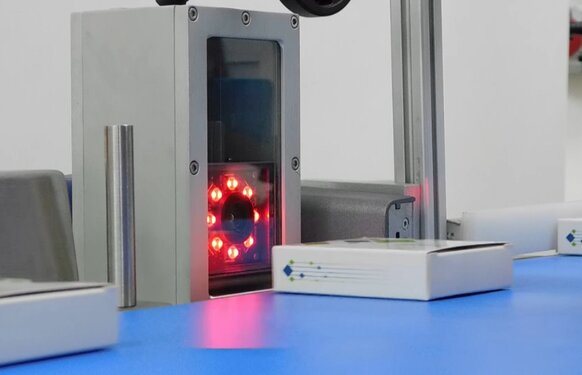
4. Production efficiency
Data collection and analysis via cloud computing allow manufacturers to track performance across production lines and understand how effectively processes work. This helps to keep things running smoothly and to identify areas for improvement.
Production managers can use cloud data to observe production in real-time and identify any changes in output that may signify a problem, and work with providers to take corrective action to keep production lines running.
In the case of Domino, machines equipped with cloud connectivity can identify faults and contact service staff to arrange an intervention, often before a customer knows of an issue. In addition, Domino’s SafeGuard AR allows service engineers to provide remote support to manufacturers in the event of an issue on the line, to quickly identify and resolve the cause of the problem and reduce overall downtime.
Remote monitoring via the cloud can also allow for the collection of historical production data that manufacturers can use for scenario planning and simulation. Manufacturers can work with support staff to implement efficiencies to improve productivity and maximise OEE.
Over time, data analysis can be used to develop the optimal conditions for production with minimal downtime and consistent, high-quality output.
5. Sustainability
Many of the tools and systems available to help manufacturers overcome production challenges can also lend a hand when it comes to sustainability and waste reduction in manufacturing. Industry 4.0 and smart solutions provide an excellent backbone for sustainable production.
Manufacturers who optimise their production with these systems and processes will be better placed to meet net-zero targets by ensuring that materials and energy are used to create high-quality products rather than waste.
Partner for success
The most prominent challenges facing manufacturers today can be addressed through smart technology and intelligent use of data, but this is not easily done alone.
Partnering with a trusted partner with experience working with Industry 4.0 is key to overcoming current manufacturing challenges and embracing the opportunities, to prepare systems, processes, and workers for the future of work.
At Domino, we have a forward-thinking approach to Industry 4.0 centred around choosing suitable options for each customer.

